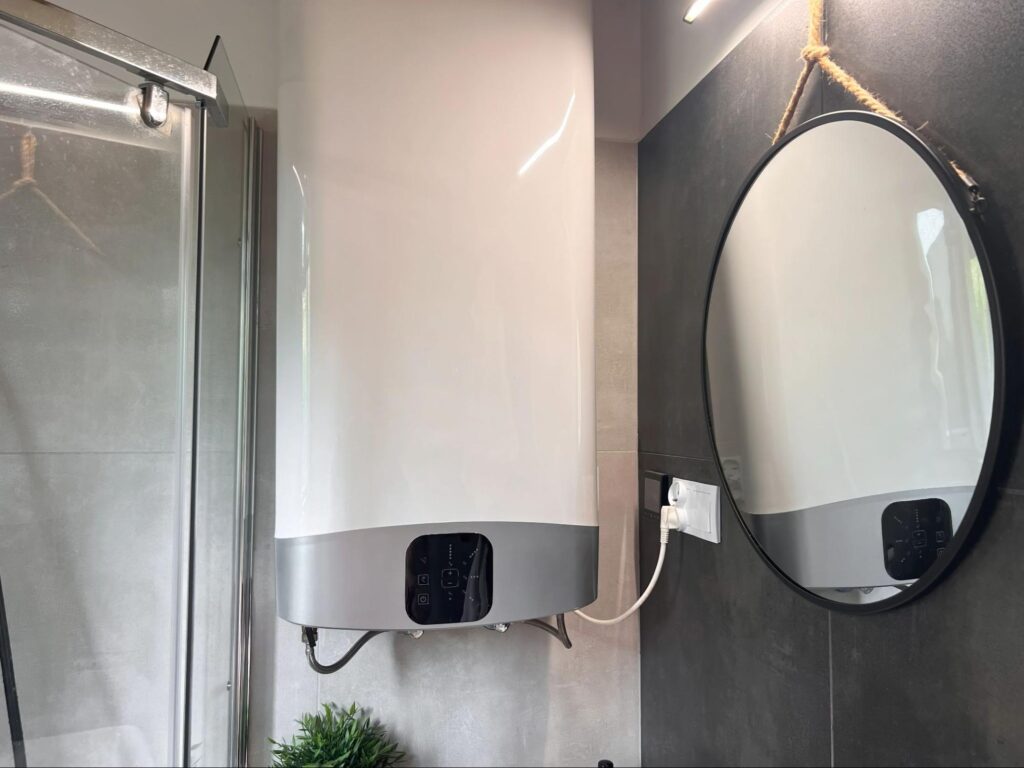
In recent years, tankless hot water units have become increasingly popular among homeowners seeking more energy-efficient heating solutions. Unlike traditional water heaters, which store large amounts of heated water in a tank, tankless units heat water on demand, offering a more efficient and cost-effective alternative. With energy efficiency becoming a priority in modern homes, these systems provide long-term financial and environmental benefits that are hard to ignore.
Understanding How Tankless Hot Water Units Work
The fundamental advantage of tankless hot water units is their ability to produce hot water instantly. When a hot water tap is turned on, cold water travels through the unit, where it is rapidly heated by either a gas burner or an electric element. This on-demand heating process not only ensures a continuous supply of hot water but also eliminates the energy waste associated with maintaining a tank of hot water around the clock.
A significant difference between electric and gas tankless units lies in how they generate heat.
Gas models typically offer higher flow rates, making them suitable for larger households, while electric units are sometimes considered more efficient for smaller homes due to their lower upfront costs and simpler installation. Moreover, the compact, space-saving design of tankless units makes them especially appealing for modern living spaces where efficiency is key.
Innovative technologies have enhanced the efficiency of these units further. For instance, condensing models capture additional heat from exhaust gases, boosting overall efficiency. Through advanced thermostatic controls and self-modulating technology, homeowners can enjoy precise temperature regulation and optimal energy use without sacrificing comfort.
The Energy Efficiency Benefits of Tankless Hot Water Units
Tankless hot water units excel in reducing overall energy consumption compared to their traditional counterparts. By eliminating the need to constantly reheat stored water, these systems can cut energy usage by up to 30%, depending on the household and water usage patterns. Most units boast energy efficiency ratings above 80%, with high-performing models reaching as high as 98%.

Energy efficiency ratings are a helpful guide for homeowners looking to adopt sustainable living practices. These ratings usually range from low to high percentages, indicating the proportion of energy that directly contributes to heating water without loss. A higher rating means more energy is used efficiently, translating to less waste and lower utility bills.
In terms of potential energy savings, households can expect to see substantial reductions in their energy expenses. For instance, smaller homes with moderate hot water demand could save hundreds annually, while larger households might find even greater savings when upgrading from a traditional tank system. By aligning improved energy use with sustainable practices, homeowners contribute to reducing carbon footprints, supporting positive environmental outcomes.
Cost Savings: Initial Investment vs. Long-term Benefits
The initial investment for a tankless hot water unit is generally higher than that for a traditional water heater. However, the long-term benefits often justify this upfront cost. While traditional heaters may cost less initially, they typically have a shorter lifespan of about 10-15 years. In contrast, tankless units can last up to 20 years or more with proper maintenance.
Durability plays a crucial role in determining the long-term value of a tankless unit, as the robust construction and advanced technology tend to offer a return on investment over time.
Maintenance requirements for these systems are relatively minimal, primarily involving descaling to prevent mineral build-up, which can extend the unit’s life and performance.
Besides energy savings, many homeowners are eligible for financial incentives like rebates or tax credits when purchasing a tankless unit, further offsetting the initial costs. The cumulative effect of reduced energy bills and increased efficiency makes tankless systems an appealing choice for cost-conscious consumers focused on longevity.
Choosing the Right Tankless Unit for Your Needs
Selecting the most suitable tankless unit requires consideration of family size, water usage, and local climate. It also depends on specific features of different brands and models. Factors such as the required flow rate, energy source (gas or electric), and installation location should be weighed carefully to match individual household needs.

Brand differentiation often hinges on performance features like smart connectivity, ease of use, and warranty offerings. Proper installation is paramount for optimal performance, often requiring professional assistance to ensure efficiency and adherence to safety regulations. Addressing common buyer concerns, such as unit capacity and compatibility with home plumbing, can aid in informed decision-making.
Overcoming Common Misconceptions About Tankless Hot Water Units
One common misconception about tankless hot water units is the fear of running out of hot water. Unlike traditional systems that can deplete stored hot water, tankless units provide an endless supply as long as the demand does not exceed the unit’s capacity. Understanding this feature reassures buyers worried about hot water availability.
Although the initial investment may seem daunting, it’s important to recognise the potential savings on energy costs over time. When viewed from a long-term perspective, the benefits often surpass the initial expense. Tankless systems might require occasional maintenance, yet they demand less effort compared to the concerns often associated with traditional water heaters.
User satisfaction with tankless units has grown as many realise the benefits of energy-efficient water heating align well with cost savings and sustainability goals. As adoption increases, the convenience and efficiency of these units are reflected in positive feedback from homeowners.
Conclusion
In summary, transitioning to tankless hot water units offers numerous benefits, notably energy efficiency and cost savings. Embracing these modern systems aligns with a commitment to sustainability and financial prudence. As more homeowners prioritise energy-efficient solutions, the positive impact on both individual households and the environment becomes clear. For those considering making the switch, seeking additional resources or expert guidance can provide the confidence needed to make informed choices, ensuring a seamless transition to this innovative technology.



